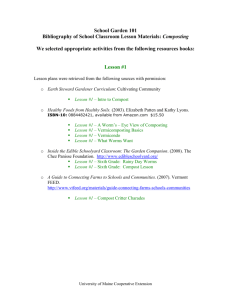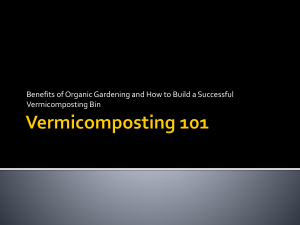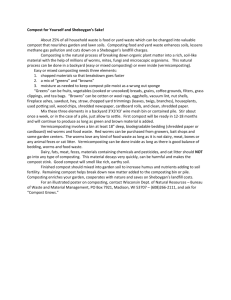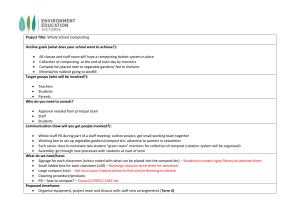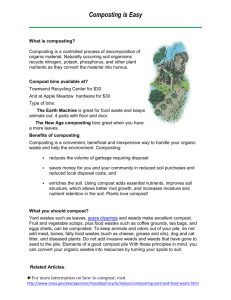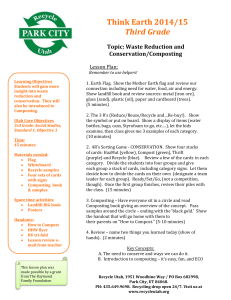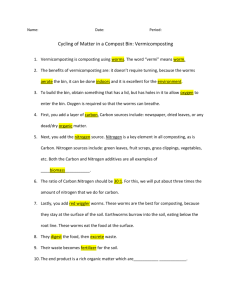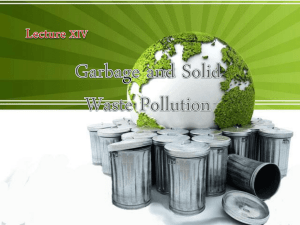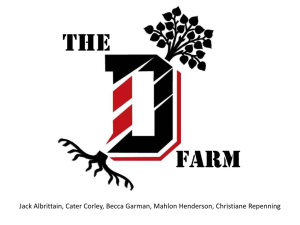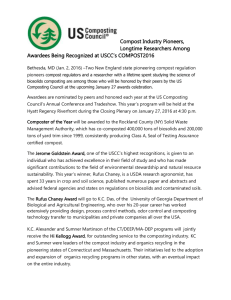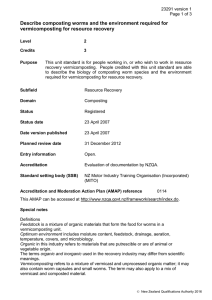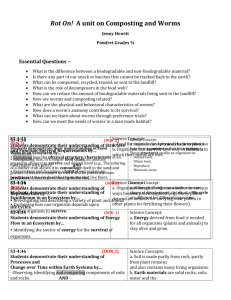Advocacy_Proj_Annotation_#4
advertisement
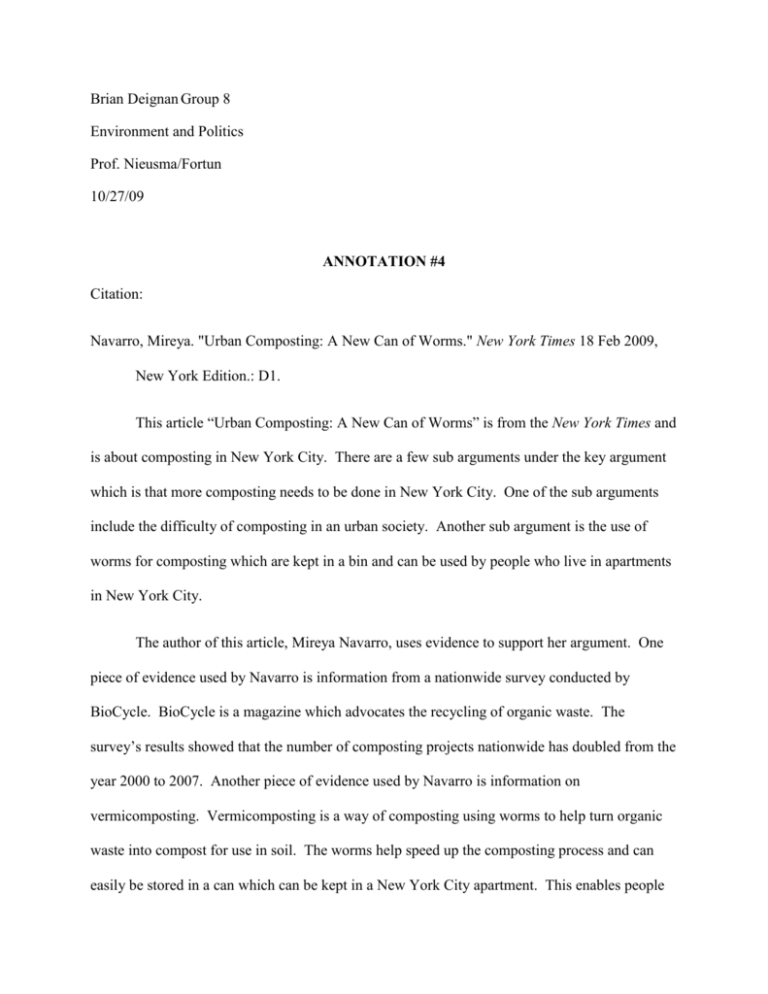
Brian Deignan Group 8 Environment and Politics Prof. Nieusma/Fortun 10/27/09 ANNOTATION #4 Citation: Navarro, Mireya. "Urban Composting: A New Can of Worms." New York Times 18 Feb 2009, New York Edition.: D1. This article “Urban Composting: A New Can of Worms” is from the New York Times and is about composting in New York City. There are a few sub arguments under the key argument which is that more composting needs to be done in New York City. One of the sub arguments include the difficulty of composting in an urban society. Another sub argument is the use of worms for composting which are kept in a bin and can be used by people who live in apartments in New York City. The author of this article, Mireya Navarro, uses evidence to support her argument. One piece of evidence used by Navarro is information from a nationwide survey conducted by BioCycle. BioCycle is a magazine which advocates the recycling of organic waste. The survey’s results showed that the number of composting projects nationwide has doubled from the year 2000 to 2007. Another piece of evidence used by Navarro is information on vermicomposting. Vermicomposting is a way of composting using worms to help turn organic waste into compost for use in soil. The worms help speed up the composting process and can easily be stored in a can which can be kept in a New York City apartment. This enables people who live in apartments to compost without having to leave there apartment and drop off their food scraps at a separate location. A third piece of evidence used by Navarro is an example of a person who has successfully composted in an apartment. Ben Stein composted in his Lower East Side apartment with his wife prior to moving to Boerum Hill. If Ben can successfully compost, then anyone else living in New York City can compost successfully in their apartment as well. This article can inform our group’s advocacy project proposal because we can now add another dimension to our proposal by also pushing the use of these worms in apartments to help increase composting. I was unaware that this could be done prior to reading this article. It seems to be a type of biological innovation to utilize the worms in order to make compost out of food scraps and other organic waste such as paper. If more people living in apartments were to use worms to compost then there would be much more waste diverted from entering landfills. Some information from this article that can be used in our advocacy project is as follows: Worms can be used to compost organic waste. This is known as vermicomposting. Vermicomposting is useful in getting rid of organic waste in apartments without having to send the waste to landfills. As long as the bin full of worms is kept relatively clean it should not attract other insects. Also the bin can be left unattended for up to three weeks.
